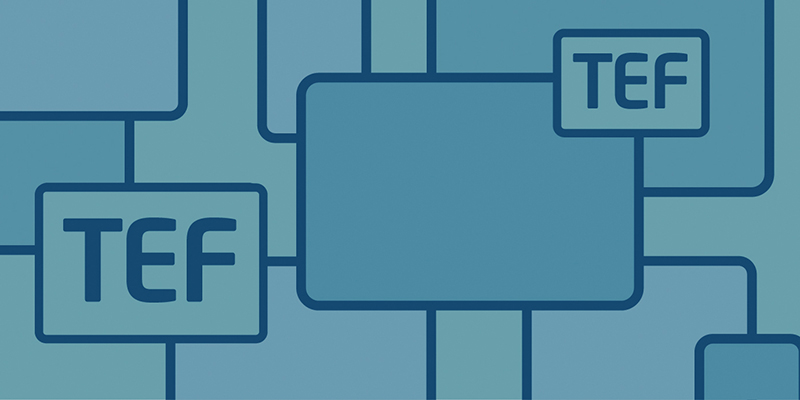This year’s TEF results have been published – focusing on excellence in teaching and student outcomes across higher education.

The results of this year’s Teaching Excellence and Student Outcomes Framework (TEF) assessments highlight examples of high-quality teaching and student outcomes across a diverse range of universities, colleges and other higher education providers, as well as where provision could improve.
The total number of higher education providers across the UK now in receipt of a TEF award is 282, with 76 providers receiving a gold award, 132 silver and 60 bronze.
To be considered for a TEF rating, providers must meet demanding national quality requirements. The TEF measures excellence above and beyond this, with providers awarded a rating of gold, silver or bronze – or a provisional award where there is not enough data for a full assessment.
This is the third year of TEF assessments. Of the 282 awards, 204 are continuing from previous assessments and 78 are from applications made this year. This year’s applications break down as:
- 64 providers that held a previous award and reapplied; 12 of them increased their rating and four moved down.
- 14 providers that applied this year for the first time.
Awards are determined by an independent panel of experts comprised of students, academics and experts on employment and widening participation in higher education. Drawing on national data combined with detailed submissions by each university or college, the TEF measures excellence in teaching quality, the learning environment, and the educational and professional outcomes achieved by students.
Professor Sir Chris Husbands, Chair of the TEF assessment panel and Vice-Chancellor of Sheffield Hallam University, said:
'The TEF results over three years paint a picture of excellence in every corner of higher education, in all regions, for all types of providers serving all types of students. I never cease to be moved by the quality of work undertaken across the sector, whether in large multi-facility universities, specialist institutions or further education colleges.
'The assessment of hundreds of universities and colleges, using the expertise of the TEF panels, has laid a solid foundation for the next phase of the TEF which will follow the independent review.'
Nicola Dandridge, chief executive of the Office for Students, said:
'All students, no matter what, where or how they study, deserve high-quality teaching which helps them to achieve good outcomes in higher education and leaves them well prepared for life after graduation. Students consistently say that teaching quality is central in determining whether they receive value for money.
'All providers registered with the us must deliver well-designed courses that provide a high quality academic experience. Since its introduction, the TEF has helped drive improvements in the student experience and outcomes, successfully focusing universities and colleges more sharply on achieving excellence in what they offer to students. We look forward to taking this work forward following the recommendations of the independent review.'
The latest TEF results, the award summaries and the evidence used in the assessments can be found on our TEF outcomes webpage. TEF results will also be shown on the UCAS and Unistats websites.
For further information contact Richard Foord on 020 7400 4139 or [email protected].
Notes
- The Office for Students (OfS) is the independent regulator for higher education in England. Our aim is to ensure that every student, whatever their background, has a fulfilling experience of higher education that enriches their lives and careers.
- So that all universities and colleges participating in the TEF will be under the same system by 2021, the duration of TEF awards has been adjusted. Previous awards that were due to expire in 2020 have been extended until 2021 and new awards made in 2019 are valid until 2021. The current award holders can be broken down as follows:
|
|
Kept previous TEF award; did not reapply this year |
Had a previous award (which would have been extended) and reapplied |
Had a previous award (which would have expired) and reapplied |
Applied for a TEF award for the first time this year |
Totals |
|
Providers currently holding a full TEF award |
204 |
17 |
34 |
13 |
268 |
|
Providers currently holding a provisional award |
0 |
0 |
13 |
1 |
14 |
|
Totals |
204 |
17 |
47 |
14 |
282 |
- In England, publicly funded universities and colleges with a TEF award may charge up to the higher maximum tuition fee for 2019 entrants. The maximum tuition fee they can currently charge for a full-time course is £9,250 per year. Those without a TEF award can charge a maximum of £9,000 per year.
- The next phase of the TEF will be defined after the independent review of the TEF has reported.
- TEF results are included in Unistats – the official website for comparing data on UK higher education providers.
